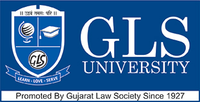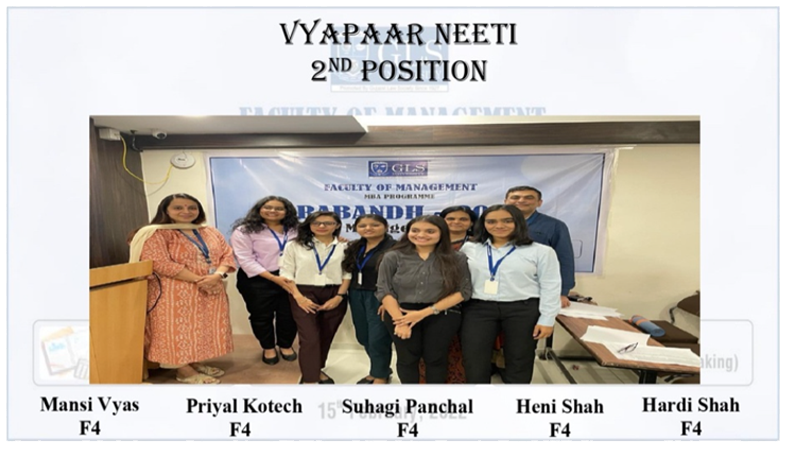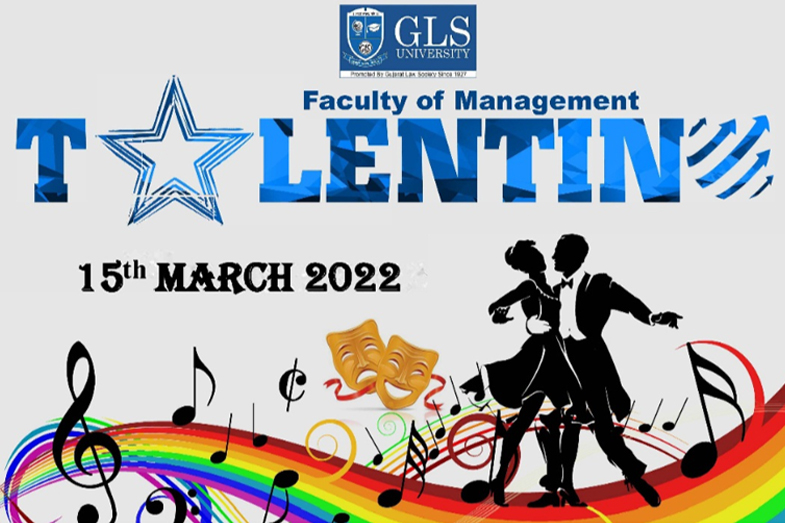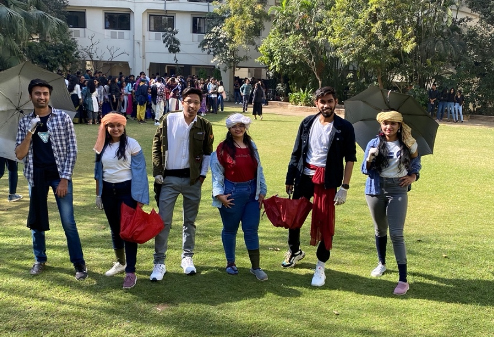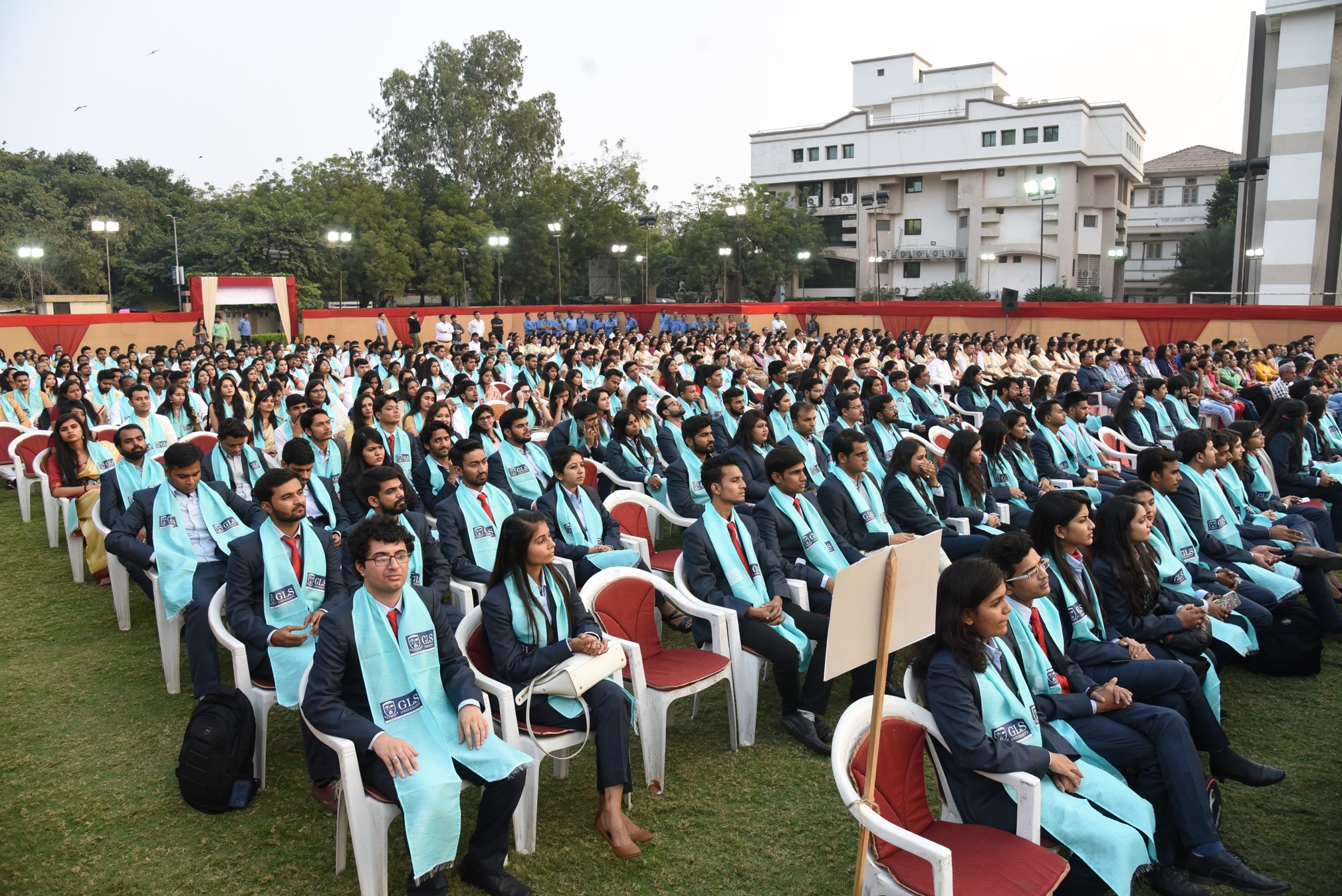Assessment, Evaluation & Award of Degree
The examination and evaluation system has been designed keeping in view the best available options of assessment and evaluation, which are globally acceptable. The basic principle of the system is that it is “scientific, objective and transparent” with the least possibility of subjectivity during evaluation.
The assessment is done to measure the knowledge, skills, and application ability identified as intended learning outcomes. The concerned Instructor assesses the understanding of concepts, theories and applications illustrated and discussed in the respective courses/subjects.
The assessment is done to help students achieve the learning outcome of the programme and to motivate them throughout the programme. In addition, the assessment is done to have scaling of the students according to their academic performance.
Evaluation Criteria:| Internal Evaluation | External Evaluation | ||
|---|---|---|---|
| Continuous Evaluation (CEC) | Mid Term Evaluation | End Term Evaluation | |
| Core Courses | 30% | 20% | 50% |
|
|||
In certain subjects like Summer Internship Project & Comprehensive Project, the evaluation pattern will consist of a component of internal evaluation as well external examination conducted by institute.
Carry forward of marks in cases where a student fails in one or more Courses/subjects:a) A student who passes in the Internal Assessment but fails in the Semester-end Examination should reappear for the Semester-end Examination of that course in the subsequent year/semester. However, his/her marks of the Internal Assessment will be carried forward and he/she will be entitled to the grade obtained by him/her on passing. For this purpose, he/she will have to fill up the examination form and pay the prescribed fee.
b) A student who passes in the Semester-end Examination but fails in the Internal Assessment should reappear for the Internal Assessment. However, his/her marks of the Semester-end Examination will be carried forward and he/she shall be entitled to the grade obtained by him/her on passing. For this purpose he/she will have to fill up the examination form and pay the prescribed fee.
Carry forward system/allowed to keep term (ATKT)/permissible backlog and eligibility for admission to higher semester:1) If a student fails in one subject/course, either in internal evaluation (Continuous components and/or internal exam) or in external evaluation, he/she will be considered as failed in that subject/course, which will be considered as backlog in one subject/course.
2) Though examinations will be held in every semester, promotions will be on a year-to-year basis.
3) Students will carry forward his/her backlogs of the first semester in the second semester but he/she will not be allowed to continue in case of more than five backlogs of the first semester in the third semester.
4) In the same way, student will carry forward his/her backlogs of the first, second and third semesters in the fourth semester but he/she will not be allowed to continue in case of more than five backlogs (total) of the first, second and third semesters in the fifth semester.
5) There will be only one university exam in a semester and only one remedial test in the next semester. In case of failure to clear the remedial, the student will have to appear in the regular semester test/exam in the subsequent year.
6) The Semester-end Examination of all semester will be held in every semester in order to enable the students who have backlog to appear for the examination and clear the same.
Grade Conversion:After adding the internal marks (maximum 50) with the marks secured by the student in the university examination (maximum 50), the marks will be converted to a letter grade as per the following formula:
| Percentage / Marks (Normalized) | Grade Points | Grade | Description |
|---|---|---|---|
| 85 - 100 | 8.5 - 10.0/td> | O+ | Outstanding |
| 70 - 84.99 | 7.0 - 8.49 | O | Excellent |
| 60 - 69.99 | 6.0 - 6.99 | A | Very good |
| 55 - 59.99 | 5.5 - 5.99 | B+ | Good |
| 48 - 54.99 | 4.8 - 5.49 | B | Fair |
| 40 - 47.99 | 4.0 - 4.7 | C | Average |
| Below 40 | 0.0 | F | Dropped or Fail |
Semester Grade Point Average (SGPA): It is a measure of performance of work done in a semester. It is a ratio of total credit points secured by a student in various courses registered in a semester and the total course credits taken during that semester. It is expressed up to two decimal places.
The performance of a student during a semester is indicated in the grade sheet by “Semester Grade Point Average (SGPA), which is calculated as follows:
If C (i) is the credit of course i and the grade point secured by the student is
G (i) In that course, the SPI is given by the formula
SGPA = Σⁿ CiGi / Σⁿ Ci,
Where the sum is over all the 'n' courses taken during a semester.
Equivalent Percentage Based on SGPA: Equivalent Percentage = SGPA * 10
Cumulative Grade Point Average (CGPA): It is a measure of overall cumulative performance of a student over all semesters. The CGPA is the ratio of total credit points secured by a student in various courses in all semesters and the sum of the total credits of all courses in all the semesters. It is expressed up to two decimal places.
In the same way, the cumulative performance of the student will be indicated by a Cumulative Grade Point Average (CGPA) which is calculated essentially by the same formula but for the sum being the overall courses taken in the current semester as well as in the preceding semesters. However, in calculating the CGPA, any fail grade which the student might have earned but has subsequently passed will be replaced by the passing grade in that subject.
Formula for conversion of equivalent percentage of CGPA:An equation to find equivalence between SGPA may be obtained as follows:
Percentage Marks = CGPA * 10
CGPA Equivalent Class will be as follows:
| CGPA From-to | Letter Grade | Classification of Final Result |
|---|---|---|
| 8.5 - 10 | O+ | First 7.0-84.99 O class with Distinction |
| 7.0 - 8.49 | O | Excellent |
| 6.0 - 6.99 | A | First Class |
| 5.5 - 5.99 | B+ | Higher Second Class |
| 4.8 - 5.49 | B | Second Class |
| 4.0 - 4.79 | C | Pass Class |
| Below 4.0 | D | Dropped or Fail |
Declaration of Final Year/Semester Result:
For a student who appears both at the final year/semester-end examination as well as at the backlog courses of the previous semesters, his/her final year/semester-end examination result will be withheld till he/she clears the backlogs of the previous semesters (if any).
Award of degree:The degree will be awarded to the students on the basis of CGPA (Cumulative Grade Point Average) of all semesters' performance in the exams.
Funshala
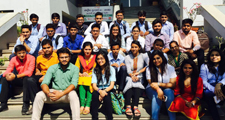
In order to cultivate imagination and creativity, which are the prerequisites of a successful corporate career, the Institute organises various events and activities which not only inculcate but also simulate the same.Funshala is one such attempt whereby the students find pleasure and enticement in the processes related to management operations and strategies.
The Core objective of the event is to create a platform where by the students can use their imagination, creative skills, leadership abilities , team work, and problem solving capabilities in different ways by participating in management games, competitions and activities like Branding Budd, Groupsterzz etc.
NAAC
GLS University
GLS University is a state private university established by the act of Gujarat State Assembly. Gujarat Law Society, the parent body of the university, is a premier educational group, offering course in multiple disciplines. It stands as a synonym for contemporary education in the region with its state of the art infrastructure which houses nearly 30 institutes in various spheres. There are over 24000 students at the campus who are assisted in the meticulously crafting their careers and leading them to the path of success. GLS has particularly expensive alumni group too which echoes the values that it has imparted, right since its inception. Being a part of some of the most distinguished corporations, across the globe, these members of its alumni have carved out a niche identity for themselves, that of being responsible, pragmatic and proactive.
GLS University is set up with a vision to benchmark the global standards of education and create path breaking programmes in the areas of strategic importance not only to the country but across the world. The university is all set to initiate various innovative programmes in diverse areas of management, information technology, communications, social sciences and commerce.
GLS is poised to become Gujarat’s first globally relevant university, delivering quality education at affordable costs.
Research Initiatives
"The institute facilitates research and development activities for its students and faculty members a like. Some of the renowned faculty members of the institute have presented their papers at global levels as well as at the world best institutions in India such as Indian Institute of Managements, Indian School of Business and Several others. The latest accomplishment is the acceptance of joint paper of Dr. Rajesh Asrani and Dr. Hitesh Ruparel for the Global Marketing Conference at Singapore."
Research Initiatives at NRIBM
| Name Surname | Title of Research Paper/Article/Case Study | Publication Detail i.e. Name of Journal, Month & Year & ISSN | Paper Presented Details: Name of Conf., Month & Year, ISBN (If applicable) |
|---|---|---|---|
| Rajesh Asrani | Does social media platforms’ integration ensure better consumer engagement? | 5th IIMA Conference on Marketing in Emerging Economies, January 2013 ISBN 978819208000-1-7 | |
| Rajesh Asrani & Nishtha Asrani | Social Media Marketing –Preferences, behaviours and usage pattern amongst people in Ahmedabad: An Empirical Study | NICOM, January 2013 | |
| Rajesh Asrani & Hitesh Ruparel | Do Advertisements on Multiple Social Media Plateforms Lead to Positive Consumer Responses in India? | Paper Accepted for "Global Marketing Conference, Singapore" - 2014 hosted by American Marketing Academy and European Marketing Association, jointly with GAMMA | |
| Hitesh Ruparel & Rajesh Asrani | Exploiting Global Boundaries: Managing Business transitions | Compiled Book published by N R Institute of Business Management, Gujarat Law Society ISBN 978-81-928788-0-5 | |
| Darshana Khakhar | Corporate Governance and Stock Performance: An Analysis of Indian Banks | PROTSAHAN, SEPTEMBER 2013 ISSN:ISSN: 2321-869X | RBCON- 2013; A National Conference on Competing Globally - A Race For Survival, September 2013 |
| Hetal Pandya | Corporate Social Responsibility and Financial Performance | ICGS2014 , March 2014. | |
| Hetal Pandya | Corporate Governance: Role of auditor and auditing committee | IPASJ International Journal of Management (IIJM),Volume 1, Issue 2 July 2013 | |
| Hetal Pandya | Corporate Governance & Stock performance: An analysis of Indian Banks | PROTSAHAN ISSN 2321 –869X. | RBCON 2013, A National Conference, September 2013 |
| Hetal Pandya | Attracting FDI in Gujarat: A Comparative Analysis | State Level UGC sponsored Conference,September 2013 | |
| Jasmin Padiya | Data Recovery: An empirical investigation of key executives in small and medium enterprises. | Gyandheep, January 2014 ISSN:2250-3374 | |
| Jasmin Padiya | Medical Tourism in India. Has it arrived?”- An Empirical Investigation | International Journal of Management Research and Business Strategy,January 2013 ISSN:2319-345X | |
| Jasmin Padiya | Are Advertisers Tuning to Radio? A Cross Sector Empirical Investigation. | Pacific Business Review , August 2013 ISSN: 1360-2381 | |
| Jasmin Padiya | Prescription for self-medication: An empirical investigation of consumers in Ahmedabad city | Global Journal of Research in Management , June 2013 ISSN:2319- 8915 | |
| Jasmin Padiya | Lessons for Rural Marketers: An empirical investigations of rural consumers purchase pattern of an FMCG product | Consumer Behaviour and Emerging Practices in Marketing | NICOM, January 2013 Consumer Behaviour and Emerging Practices in Marketing ISBN: 978-93-5097-411-7 |
| Kalagi Shah | Evolution and Practice of Green Marketing in India | NICOM-2013, Changing Perspectives, Paradigms & Practices, ISBN: 978-93-5097-410-0 | |
| Kalagi Shah | Academic Stress taking a toll on Management Post Graduates: A Myth or a Reality | 49th National & 18th International Conference of Indian Academy of Applied Psychology, March 2014 | |
| Kavita Kshatriya | A Journey towards part of Change Management | International Journal for Academic Reviews: January 2014 ISSN No. 2347 - 7997 | |
| Kavita Kshatriya | Yuva Unstoppable – Life Initatives Beyond HR” - | ICGS March 2014 | |
| Megha Shah | Forensic Accounting & Audit Expectation Gap-The perception of Auditors in Ahmedabad | The Journal of Management & Co-operation, May 2013 ISSN: 2249-2275 | |
| Megha Shah | Impact of Inflation on Real Asset & Cash Flow in Financial Statements | International Research journal of Commerce, Business & Social Sciences, February 2014 ISSN: 2277-9310 | |
| Megha Shah | Financial Globalization – the impact on accounting regulations, systems & research | International Conference on Globalized Business, GTU February 2014 | |
| Neha Rohera | An Indian perspective towards applicability of mobile governance: An in depth comparative analysis | 2nd International Conference on Corporate Governance by GTU, March 2014 | |
| Nishtha Asrani | Social Media Marketing –Preferences, behaviours and usage pattern amongst people in Ahmedabad: An Empirical Study | NICOM, January 2013 | |
| Nishtha Asrani | Intra Organizational Challenges and Value Based Leadership | 49th National and 18th International Conference of the Indian Academy of Applied Psychology, March, 2014 | |
| Prashant Pareek | Market Development Assistance To Samalkha Cluster To Enter In Gujarat Market | Cases In Business Marketing,Paliwal,Singh,Yadav, Mcgraw- Hill | |
| Prashant Pareek | A Study On Franchise Model Of Leading Apparel Brands In Ahmedabad and North Gujarat | Pacific Business Review International, October 2013, ISSN:0974-438X | |
| Prof. Pooja Shah | An Indian perspective towards the applicability of mobile governance: An in-depth comparative analysis | 2nd International Conference on Corporate Governance by GTU, March 2014 | |
| Prof. Pooja Shah | Academic stress taking a toll on management post graduates:A myth or a reality | 49th National & 18th International Conference of Indian Academy of Applied Psychology, March 2014 | |
| Shweta Bambuwala | Intra Organizational Challenges and Value Based Leadership | International Conference of IAAP at GLS , march 2014, | |
| Shweta Bambuwala | Why Whislte Dosen't Blow in India? | 2nd International Conference on Corporate Governance by GTU, March 2014 | |
| Sneha Shukla | Corporate Governance in India: Some New Initiative | Sankalpa: Journal of Management & Research, Volume 3, Issue 1, January-June 2013, ISSN : 2231-1904 | |
| Srushti Mehta | Issues and Challenges on Cloud Computing | PROTSAHAN, SEPTEMBER 2013 ISSN: 2321-869X | RBCON- 2013; A National Conference On Competing Globally - A Race For Survival,September 2013 |

